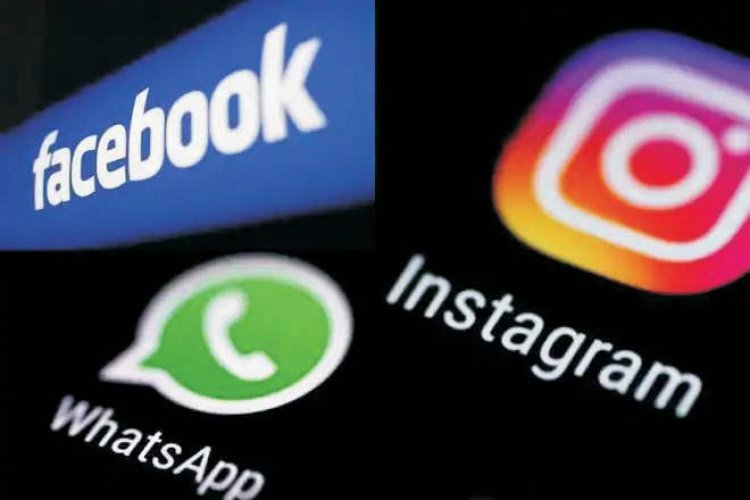Are Twitter’s Fears about Big Brother justified?
Amulya Ganguli

The outcome of the government’s engagements on multiple fronts even in the midst of a devastating pandemic is being keenly awaited not only in India but all over the world.
Apart from the controversy about the remodelling of the central vista in the heart of New Delhi over which scores of national and international celebrities have expressed their disapproval, and the impact of the New York Times’ report that deaths from Covid-19 are much higher than what is officially claimed, the government is fighting with WhatsApp and other social media outfits over its order about exercising control.
Since nearly all of these are foreign, mainly American, entities, interest on how the altercation progresses and ends will be worldwide. Among those who will pay special attention to the wrangle are the potential foreign investors who will try to ascertain from the tug of war how the government treats private companies.
They must have already noted how the Amnesty International had to leave India. It is unlikely that any of the social media giants – WhatsApp, Twitter, Facebook, Instagram – will follow the Amnesty’s example of withdrawing from India on the grounds that, as the organization claimed, the government had launched a witch-hunt against it.
But they are nevertheless likely to use all the tricks in the book to stall the government’s alleged intervention in their functioning. WhatsApp has already gone to court over the government’s move seeking information about its users by arguing that it violates the principle of privacy.
The government has denied it, of course, arguing that no right, including the right of privacy, is absolute while insisting that the users of these streaming platforms which together have five million subscribers need not fear the “Big Brother is watching you” syndrome. The CEO of Google, Sundar Pichai, has said that even as the company respects the legislative processes of the countries where it operates, it will “push back” if it feels that the government is being too intrusive. “It’s a balance we have struck around the world”, he added.
WhatsApp has already “pushed back” by going to court while the other digital outlets have been in no hurry to implement the government’s directives on appointing chief compliance officers, nodal contact officers and resident grievance officers who are expected to function as watch dogs to ensure that the various companies are not stepping out of line by refusing to remove any content which has aroused official displeasure.
It’s worth remembering that all the present fuss, which includes a police “visit” to the offices of Twitter has followed the labelling of a tweet by a BJP spokesman as “manipulated” by Twitter. The spokesman had accused the Congress of maligning the country, but the “evidence” which he produced did not pass muster with Twitter. Hence, the kerfuffle.
A few weeks ago, Twitter had also permanently banned a celebrated Bollywood actress who is known for her vituperative outbursts against the BJP’s opponents. Now, she has mocked the micro-blogging site by describing it as “Twitter the great, the unelected member of parliament, supreme justice of the world, keeper of moral compass of humanity and what is their basic qualifications or credentials to ask or forcibly acquire this power ? Who are they ?”
It is obvious that the battle lines are drawn between the influential Big Tech companies on one hand and the ruling party at the centre on the other. It is this political division which can weaken the latter’s case for control, for the government’s initiative for imposing what the Congress has called “dire, drastic and draconian” regulations will be seen to have been motivated more by politics than concern for the nation’s security.
The battle between the social media and the government is only a continuation of the latter’s earlier tussle with the mainstream media. Not surprisingly, the News Broadcasters’ Association has urged the government to “exempt and exclude” the traditional television news media and its presence on digital news platforms from the new Information Technology rules because these media groups have already been “sufficiently regulated” by various statutes.
Apart from TV, newspapers, too, have had to confront the government in the past to protect their editorial independence. Since, as in the case of the social media, the question of such independence is related to the concept of the freedom of speech, any attempt to regulate these media outlets has always been presented by the latter as attacks on the right to speak freely, which is deemed as one of the hallmarks of a democracy.
At the same time, the counter-argument, as is also being made in the present instance, has been that a few free-wheeling editors cannot determine what can be said or not said. There has to be either a regulatory body to oversee the content of what is being printed or broadcast or telecast, or these media outlets will have to exercise self-censorhip. The editore have generally preferred the second option, and it must be said that this form of oversight has worked well, especially where the major newspapers or television channels are concerned.
But these are not the only ones who operate in the media world. There are also numerous small publications who may not always abide by the self-regulatory norms. In a way, the social media is not unlike these small pamphlets or leaflets or flyers (which are derisively called “rags”) since innumerable netizens figure on the micro-blogging sites, expressing views which can often be abusive or biased or ill-informed.
Since political battles are nowadays fought via tweets, suspected “manipulated” barbs of the kind which is partly responsible for the present brouhaha can fill the air. Yet, if the government steps in, it can be accused of playing the role of a censor. But are the executives of Big Tech capable of ensuring a level playing field ?
















